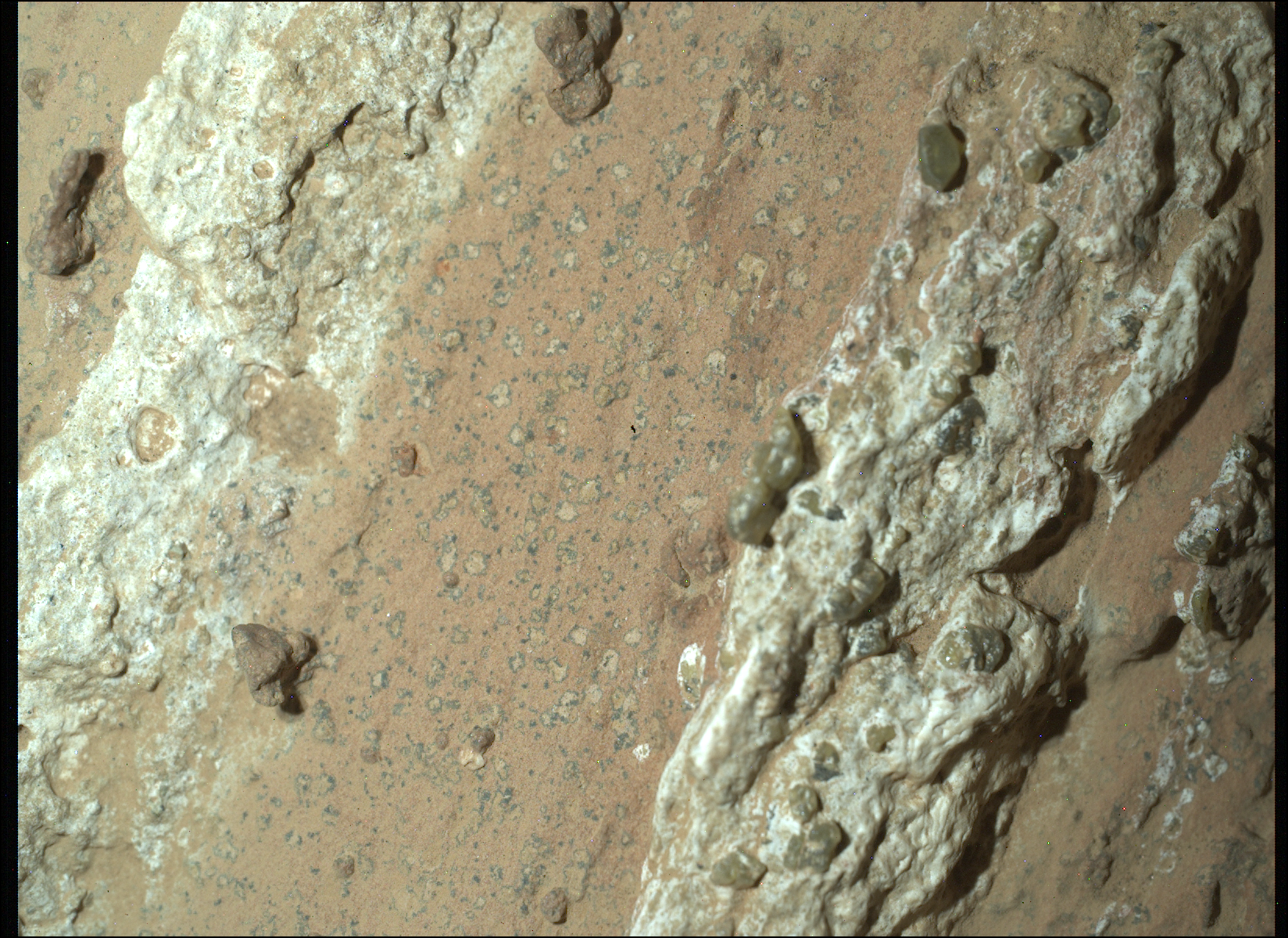Support truly
independent journalism
Our mission is to deliver unbiased, fact-based reporting that holds power to account and exposes the truth.
Whether $5 or $50, every contribution counts.
Support us to deliver journalism without an agenda.

Nasa may have found evidence of past alien life on Mars.
The space agency says that its rover, Perseverance, has found a rock that might once have been host to microbial life, billions of years ago.
A host of notable traits found on the rock suggest that it is possible that it is evidence that there is life on the red planet. Researchers say that it is filled with organic compounds, shows that water once flowed through it, and is marked with specks of the kind that on Earth usually signal life.
The Perseverance rover has used onboard instruments to examine the rock, nicknamed “Cheyava Falls” and shaped like an arrowhead. That analysis showed that it had chemical signatures and structures that might have been formed by ancient life forms.
That life was probably microbial, and lived billions of years ago when parts of Mars had flowing water. But it would be the first ever firm indication that Mars was once inhabited – and of any kind of life on another planet.

Nasa cautioned that other explanations for the “fascinating traits” of the rock are still being examined. Further research will also be required before scientists feel confident to say that ancient life would serve as an explanation for those traits.
“We have designed the route for Perseverance to ensure that it goes to areas with the potential for interesting scientific samples,” said Nicola Fox, associate administrator, Science Mission Directorate at NASA Headquarters in Washington, in a statement. “This trip through the Neretva Vallis riverbed paid off as we found something we’ve never seen before, which will give our scientists so much to study.”
The piece of rock was the 22nd chunk of rock core picked up by the rover. It was gathered on 21 July, in an area of the Jezero Crater than Perseverance has been examining.
Since then, it has been examined by the SHERLOC, or Scanning Habitable Environments with Raman & Luminescence for Organics & Chemicals, instrument. It showed that it contained organic compounds – which are the building blocks of life, but can come about through non-biological processes.
Another particularly notable part of the rock was off-white spots, ringed with black, that can be seen on the rock itself. Researchers say that those types of features, when found on Earth, usually indicate that there are fossilised microbes living inside.
“Cheyava Falls is the most puzzling, complex, and potentially important rock yet investigated by Perseverance,” said Ken Farley, Perseverance project scientist of Caltech in Pasadena.
“On the one hand, we have our first compelling detection of organic material, distinctive colorful spots indicative of chemical reactions that microbial life could use as an energy source, and clear evidence that water — necessary for life — once passed through the rock. On the other hand, we have been unable to determine exactly how the rock formed and to what extent nearby rocks may have heated Cheyava Falls and contributed to these features.”
Though further research and work is required to better understand the chance of alien life, researchers note that the rock has been scanned as much as possible using the Perseverance rover. To get a full explanation of the rock, scientists might have to bring it back down to Earth, where it can be more fully scanned with the powerful instruments in laboratories down here.
The European Space Agency had hoped to send a Sample Retrieval Lander mission to the Martian surface to pick up samples and bring them back down to Earth. But it has been delayed, with the cost and complexity of the mission leading to some fears that it might be cancelled entirely.

